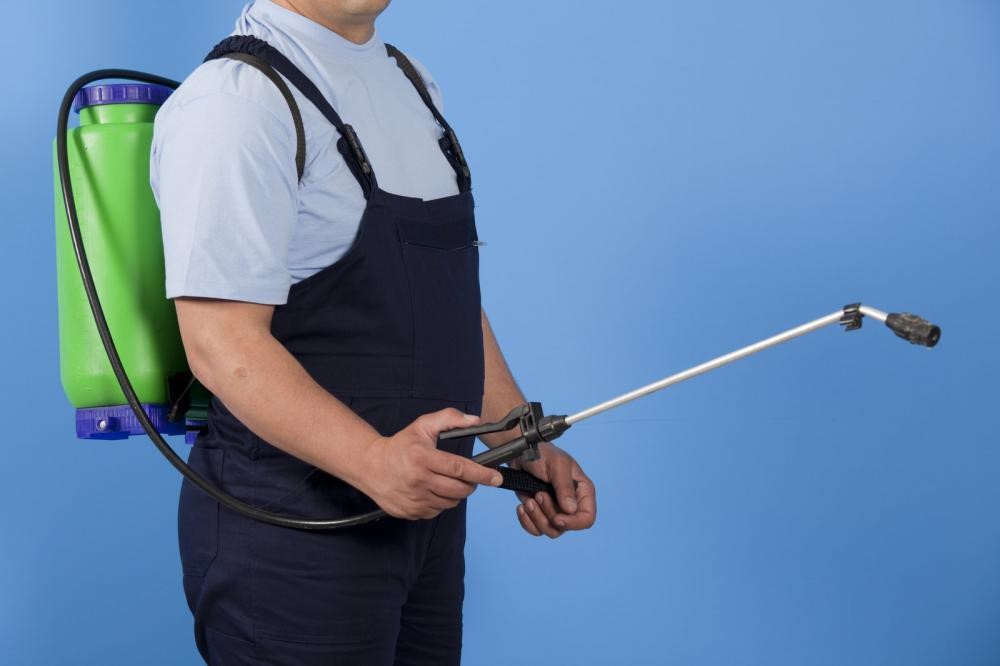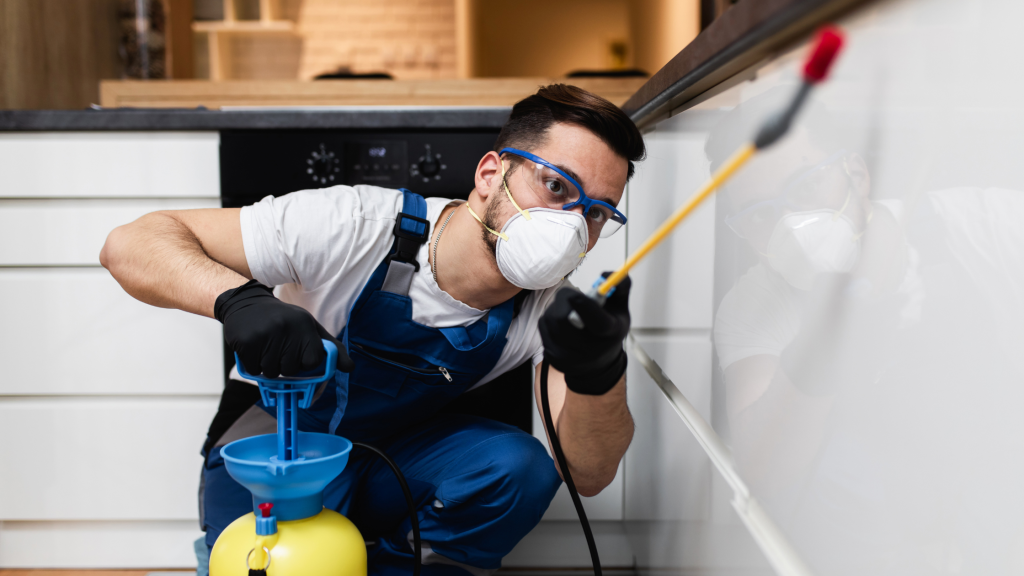Understanding the Different Strategies to Parasite Control: A Comprehensive Guide

Natural Insect Control Techniques
Using eco-friendly techniques such as friend growing and biological pest control is essential for properly handling parasites in farming settings. Companion growing involves expanding different crops in distance to hinder pests, boost nutrient uptake, and enhance overall plant health and wellness.
Organic bug control involves presenting all-natural killers or microorganisms to regulate pest populations. Ladybugs, for example, eat aphids, controlling their numbers without the demand for chemical pesticides. Another example is making use of Bacillus thuringiensis (Bt), a bacterium that targets certain insect pests while being safe to humans, animals, and beneficial bugs.
These eco-friendly techniques not only decrease the dependence on synthetic chemicals but likewise aid preserve biodiversity and dirt wellness. By incorporating all-natural pest control methods right into agricultural methods, farmers can attain sustainable insect monitoring while reducing unfavorable influence on the atmosphere.

Chemical Parasite Control Solutions
Along with natural insect control approaches, the application of chemical pest control services plays a substantial function in successfully taking care of pest populaces in agricultural environments. Chemical insect control services are developed to target certain parasites that might create comprehensive damage to crops. These services typically consist of artificial chemicals that are created to remove pests quickly and efficiently.
One of the key advantages of chemical pest control solutions is their performance in regulating parasite problems on a huge range. Farmers can use these options utilizing different techniques such as spraying, airing out, or seed therapy to secure their plants from dangerous bugs, weeds, and illness. Additionally, chemical pest control remedies are reasonably simple to apply and can offer rapid outcomes, assisting farmers safeguard their returns and decrease economic losses.
However, it is essential to make use of chemical bug control options judiciously to decrease prospective adverse effects on the setting, non-target organisms, and human wellness. Appropriate application strategies, adherence to security standards, and routine monitoring are vital to guarantee the liable use of chemical bug control solutions in farming techniques.
Biological Insect Control Approaches
Organic insect control comes close to leverage natural killers or pathogens to handle parasite populations in agricultural setups efficiently. This technique uses a sustainable and green solution to pest administration, lowering the reliance on artificial chemicals and reducing damage to the setting. One common biological control method is the intro of all-natural adversaries, such as ladybugs or parasitic wasps, to target particular insects. These killers feed on the insects, assisting to manage their populaces normally - pest control clovis.
Another biological control approach entails utilizing microorganisms like germs, viruses, or fungi to contaminate and eliminate bugs. On the whole, organic parasite control techniques supply a sustainable and targeted solution to pest administration in farming.
Integrated Insect Administration (IPM)
Integrated Insect Administration (IPM) is a detailed strategy that incorporates various pest control approaches to successfully handle and lessen pest populaces in farming systems. IPM focuses on lasting avoidance of bugs via a mix of organic, social, physical, and chemical control techniques. By incorporating these various approaches, IPM aims to reduce reliance on chemical pesticides, minimize ecological effect, and advertise sustainable bug administration techniques.
One secret facet of IPM is using organic controls such as natural killers, parasites, and pathogens to manage parasite populaces. This technique uses the power of nature to preserve an equilibrium in between pests and their all-natural opponents without creating damage to the environment.
Furthermore, IPM includes social methods navigate to this site like crop habitat, hygiene, and turning control to create undesirable problems for pests and interrupt their life cycles. Physical controls such as catches, barriers, and mulches are likewise made use of to prevent insect infestations.
Physical and mechanical Bug Control Techniques
Making visit this site use of non-chemical techniques, such as mechanical and physical bug control techniques, is a critical element of thorough insect monitoring techniques, building on the foundation of Integrated Pest Management's alternative approach. Mechanical parasite control entails the use of physical barriers or catches to stop insects from accessing and damaging plants or structures. This method can include methods like setting up displays on windows, making use of row covers in agriculture, or utilizing sticky traps to catch bugs.
Physical bug control approaches, on the various other hand, emphasis on straight eliminating parasites via physical ways. Utilizing warm therapies to remove bed bugs or vacuuming up bugs like spiders or ants can be effective methods to take care of infestations without the usage of chemicals. By incorporating these physical and mechanical parasite control methods right into find an Integrated Pest Monitoring strategy, individuals and specialists can minimize dependence on chemicals while still efficiently taking care of pest populations and lessening damages.
Conclusion

In enhancement to natural pest control approaches, the use of chemical insect control remedies plays a substantial role in effectively taking care of pest populaces in agricultural settings.One of the essential benefits of chemical bug control solutions is their performance in controlling parasite invasions on a huge scale.Integrated Pest Administration (IPM) is a thorough technique that combines various insect control techniques to efficiently take care of and lessen pest populaces in agricultural systems.Making use of non-chemical methods, such as physical and mechanical parasite control strategies, is an essential aspect of thorough insect monitoring techniques, developing upon the structure of Integrated Insect Monitoring's holistic method. By including these mechanical and physical insect control methods right into an Integrated Pest Administration strategy, specialists and people can reduce dependence on chemicals while still efficiently taking care of pest populaces and minimizing damages.